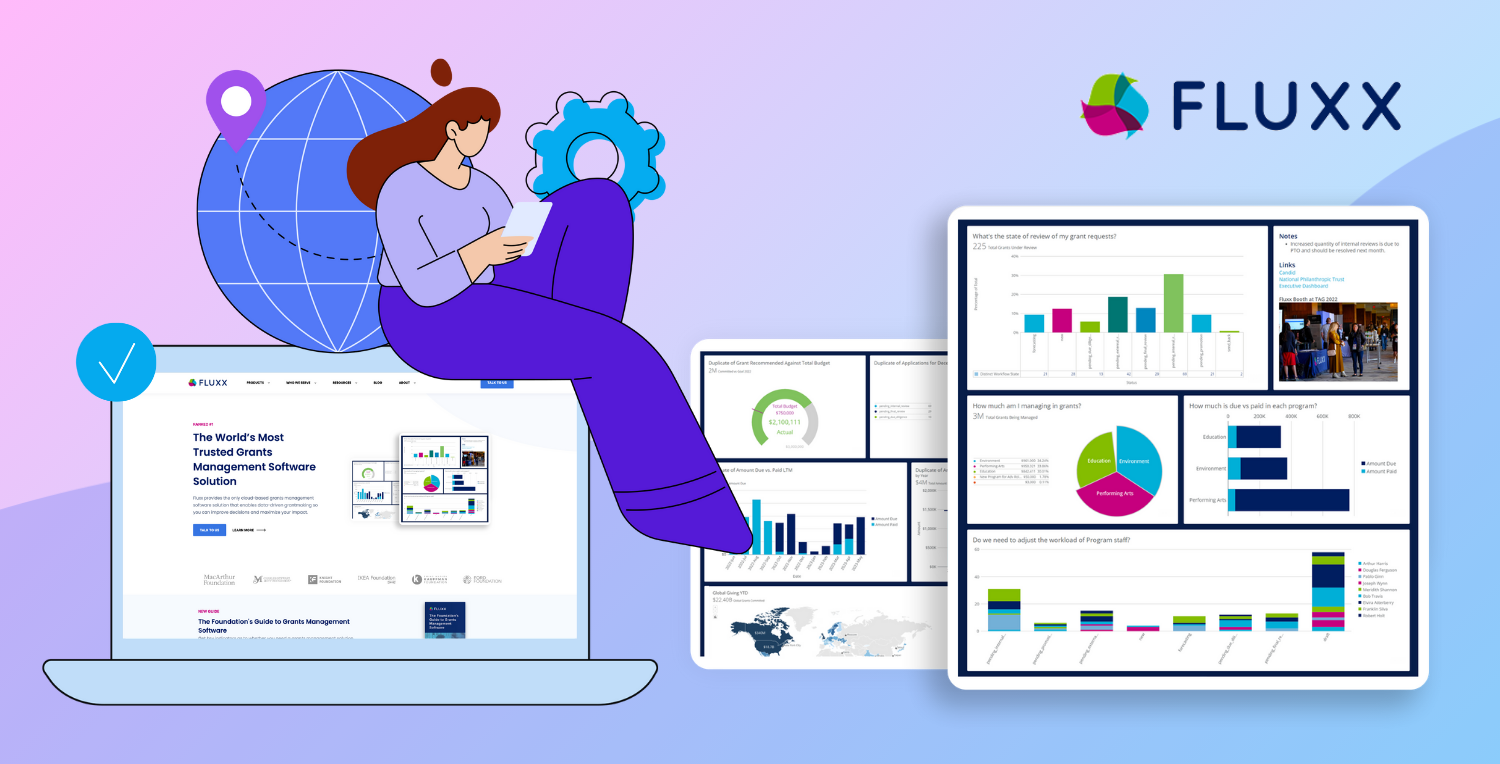Tech companies today operate in an environment defined by rapid innovation, tight deadlines, and unpredictable demand. Staying competitive requires not only continuous product development but also the ability to quickly adapt to shifting market conditions and customer expectations. For many companies, this fast pace creates both opportunities and operational challenges.
Whether you’re a fast-growing SaaS provider, a cybersecurity firm, an AI-focused startup, or an enterprise software vendor, success depends on more than just cutting-edge technology. Delivering seamless implementations, managing complex client projects, and ensuring high-quality customer experiences are critical to maintaining trust and driving growth.
In this article, we examine the most common professional services challenges tech companies face and how partnering with scalable partner solutions can help overcome them while supporting scalable, sustainable growth.
3 Scalability Challenges Tech Companies Face
1. Limited specialized expertise for complex client projects
One major hurdle tech companies encounter is the limited specialized expertise within internal teams. Product-focused firms typically excel at innovation but may lack deep domain expertise required for complex customer projects, such as sophisticated data migrations, industry-specific customizations, or intricate integrations. For example, enterprise software vendors frequently rely on external partners for industry-specific knowledge because maintaining such specialized expertise internally can be impractical or excessively costly.
2. Difficulty scaling services to meet fluctuating demand
Another significant challenge is scaling professional services to meet peak demand. Customer onboarding and project requirements often come in waves, creating periods of intense activity followed by slower phases. Accurately predicting resource needs can be difficult—industry reports indicate that 62% of large professional services organizations struggle to forecast staffing requirements effectively. Over-hiring during peak demand leads to high overhead and potentially idle employees during slower periods, while under-hiring risks delays in project delivery and customer dissatisfaction.
3. High costs of building and maintaining in-house PS teams
Maintaining in-house professional services teams is also a substantial financial commitment, especially for smaller tech companies. The process of recruiting, training, and retaining skilled implementation consultants is expensive—the average cost per hire alone approaches $4,700, with total onboarding costs often reaching three to four times the employee's annual salary. Due to these costs, in-house professional services teams frequently operate at a loss, particularly in SaaS companies, which commonly experience negative gross margins ranging between 10–20%.
Benefits of Professional Services Outsourcing for Tech Companies
Engaging external professional services (PS) providers can effectively address these challenges, allowing tech companies to focus on their core competencies—product innovation and strategic growth. The key benefits of forming such partnerships include:
1. Rapid and Flexible Workforce Scaling
Partnering with external professional services firms provides a highly flexible and scalable workforce. When a company experiences a surge in customer onboarding or initiates a significant rollout, a professional services partner can swiftly ramp up staffing. Conversely, during slower periods, the team can be scaled down efficiently without the negative consequences associated with internal layoffs or idle staff. This model ensures the efficient use of resources and maintains consistent service quality without incurring fixed long-term costs.
2. Access to Deep Expertise for Complex Client Needs
Professional services firms offer deep domain expertise, bringing seasoned consultants who have tackled similar challenges across multiple industries. Whether handling complex integrations, regulatory compliance issues, cybersecurity concerns, or customized client configurations, external experts can confidently address these tasks. This capability enables tech companies to pursue complex projects without diverting their internal resources away from essential product development efforts.
3. Proven Methodologies and Structured Processes
Established professional services partners bring proven methodologies and structured implementation processes, significantly accelerating project onboarding and execution. They offer ready-to-use playbooks, standardized templates, and best practices refined through extensive client engagements. Leveraging these established methods not only accelerates client onboarding but also ensures consistency and reliability in service delivery, ultimately enhancing overall customer satisfaction and project outcomes.
Case Study: How Fluxx Used Scalable Partner Solutions
Fluxx, a grants management SaaS provider, needed rapid scalability without sacrificing service quality. Fluxx partnered with Social Edge Consulting as a scalable technology consultancy to implement a strategic "shadow-to-independence" model. Social Edge first shadowed Fluxx’s in-house team to thoroughly understand the product, methodology, and company culture. Gradually, Social Edge transitioned to independently managing customer implementations, substantially expanding Fluxx’s professional services capacity.
Through this strategic collaboration, Fluxx achieved several tangible outcomes:
- Rapid customer onboarding, effectively meeting increased demand without project delays.
- Global service coverage, providing consistent customer support across multiple regions and time zones.
- Flexible scalability, precisely matching resource allocation with fluctuating demand and avoiding unnecessary costs.
- High-quality and consistent service, ensuring strong customer satisfaction and predictable financial margins.
Fluxx’s CEO notably described this partnership as transformative, highlighting that Social Edge Consulting effectively became an integral extension of the Fluxx team, enabling seamless scaling while maintaining high-quality service delivery.
Read the complete Flux professional services case study
Cross-Industry Benefits and Wider Implications of Using a Scalable Technology Consultancy
The Fluxx and Social Edge Consulting example isn’t isolated—similar advantages apply broadly across tech sectors, including SaaS, artificial intelligence and machine learning (AI/ML), Fintech, cybersecurity, and enterprise IT solutions. Each industry faces unique but analogous implementation challenges, and professional services partnerships universally offer:
- Cost Efficiency: Partnerships convert fixed overhead costs into flexible, predictable expenses aligned closely with actual business demand.
- Enhanced Scalability: Companies can rapidly adjust workforce size and expertise according to project requirements, enhancing operational agility.
- Accelerated Client Value: Expert-driven implementations ensure faster project completion and quicker realization of value for customers.
- Continuous Innovation: Internal teams remain focused on core competencies, enabling continuous product innovation and competitive differentiation.
Leveraging professional services partnerships is not merely an operational decision—it is strategic. In today's rapidly evolving tech environment, characterized by intense competition and scarce talent resources, these partnerships are essential for sustainable growth, operational agility, and competitive advantage.
Why Having an Implementation Partner for Scaling Companies is Critical
For CEOs, CTOs, and other senior leaders at tech companies, professional services partnerships deliver critical strategic benefits.
They allow organizations to remain lean and focused, reduce operational risks associated with unpredictable demand, and facilitate access to specialized talent without substantial internal investment. Moreover, these partnerships help companies maintain customer satisfaction and consistent service quality, significantly impacting customer retention, brand reputation, and long-term revenue growth.
The evidence strongly supports the strategic value of professional services partnerships in the tech sector. Companies that proactively embrace these partnerships will find themselves better positioned to manage complexity, scale effectively, and sustain growth in an increasingly dynamic marketplace.
Partner With a Scalable Technology Consultancy to Solve Your Scaling Issues
Social Edge Consulting helps tech companies tackle scaling challenges head-on. As an implementation partner for scaling companies, we provide scalable partner solutions that give you the flexibility to meet fluctuating demand, access specialized expertise, and strengthen professional services delivery.
Instead of overburdening internal teams, we act as your scalable technology consultancy, supplying the right talent and processes at the right time. This ensures consistent, high-quality service for your customers while enabling your business to scale with technology.
Learn more about our professional services for tech companies.
Frequently asked questions (FAQs) about scaling tech companies
What are the top challenges in scaling tech startups?
The biggest challenges in scaling tech startups include limited access to specialized talent, unpredictable demand cycles, and the high cost of building and maintaining in-house teams. Startups also face difficulties balancing product innovation with service delivery, which can impact customer satisfaction as they grow.
What solutions are suited for tech companies supporting global scale?
Tech companies operating at global scale benefit from scalable partner solutions, cloud-based infrastructure, and professional services consultancies that can deliver consistent results across regions. This includes addressing compliance requirements, localization needs, and time zone coverage, while ensuring customers receive a uniform experience worldwide.
How do technology consultancies support start-ups with digital scaling?
Technology consultancies support start-ups by offering on-demand expertise, structured implementation processes, and flexible staffing models that scale with demand. Partners like Social Edge Consulting help founders focus on product growth while managing client onboarding, integrations, and complex service delivery more efficiently.
What are the best resources for scaling a technology company?
The most effective resources for scaling include professional services partners, automation and workflow platforms, cloud-based systems, and standardized delivery playbooks. These resources allow companies to adapt quickly to demand, reduce overhead, and accelerate customer success without overextending internal teams.
How to optimize service delivery models for rapid scaling?
Service delivery models can be optimized by standardizing onboarding, adopting proven playbooks, and working with external professional services teams to fill capability gaps. This approach improves consistency, reduces delivery bottlenecks, and ensures that rapid scaling doesn’t compromise quality or customer experience.
What are the challenges in scaling technology teams across regions?
Scaling technology teams across regions brings challenges such as time zone coordination, regulatory compliance, and maintaining a consistent company culture. Partnering with experienced global consultancies makes it easier to manage these complexities with flexible staffing, localized expertise, and unified delivery models.











